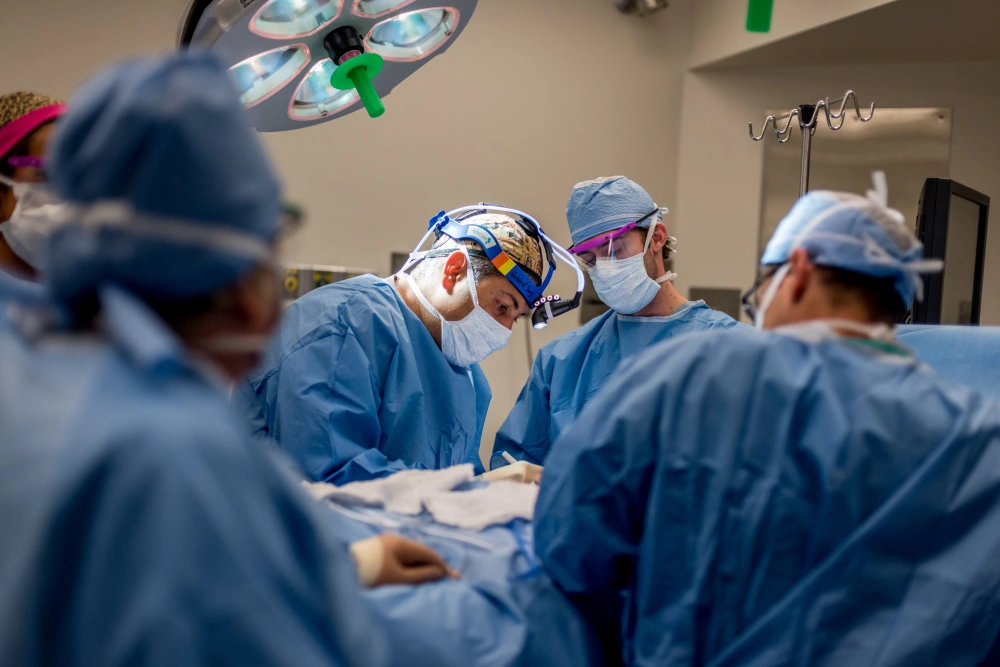
Scanxiety forced me to change my cancer surgery decision
If you spend more time talking with cancer survivors, there’s one term that will eventually come up in conversation: scancy. This is the anxiety that comes with every scan, imaging study or screening test. During treatment, it arose with a new test or scan, either because of new symptoms (hence trying to find out if those symptoms were caused by known or worsening cancer), or perhaps trying to figure out how far the treatment was working (hopefully to see the shrinkage of the tumor, probably in response to existing treatments).
For people who have cancer that is successfully treated, it is common that routine cancer screening takes place regularly. In the case of breast cancer, I knew of the following options: If a person opts for a lumpectomy or a single mastectomy, he (or she) will still need a mammogram at least on an annual basis, and sometimes additional screening tests are also necessary. , such as breast MRIs. For people with dense breast tissue, a common protocol is that a mammogram and then a breast MRI six months later, each is done annually, so there are two breast cancer screening tests each year. Once a person has a dual mastectomy, they will no longer need a regular mammogram or screening test, as the breast tissue is now gone (or almost completely gone, as current surgical techniques allow – there will always be a few breast cells left).
I knew that was the case when I opted for a single mastectomy. The idea that there would be no further screening tests made me quite anxious, and I realized I wanted the reassurance that comes with routine imaging studies.
I say that in general, I am a very logical, rational man. I am a physician – I spend my entire working life weighing the risks and benefits. With this test, this treatment, not taking specific action and instead just watching and waiting. I understand that there is no guarantee, and that having regular screening tests, even those that are considered routine by trained radiologists, does not provide a 100% assurance that cancer is not there.
With all this in mind, I thought I wanted a regular mammogram and breast MRI on the rest of the breast. I honestly thought I would feel better with them. So, when I underwent my first post-cancer screening breast MRI, I wasn’t fully and fully prepared for my most potent response. To say I was a basket case would be the smallest thing of the century.
In the 24 hours between scanning and getting the results, I persevered, rumored and wondered what the results would be. For 24 hours, my mind was completely immersed in fear, and no matter how hard I tried, I absolutely failed to rationalize my way out of this basic panic response. I’ve never seen a reaction near it before.
This was my first introduction to Skenziti: unbridled fear, the slowness of the passage of time, the swirling of reality in my head… It was too much for me to experience it only once.
Eventually, I opted for three more surgeries to avoid going through it with every screening test every six months. I had a prophylactic mastectomy on the other side followed by two reconstructive surgeries. Sure, there were other benefits that I gained from the prophylactic procedure, but the biggest benefit in my mind was never to go through this emotional cycle again.
I realize how lucky I was that this one option was also available to me. There are a lot of people out there who are living with metastatic cancer who will always need to have scans and tests that can trigger weak scan anxiety (at least temporarily). I have a lot of respect for those who should go through it regularly. Even for cancer survivors who are not metastatic, every screening test can bring them back to the beginning of this terrifying journey. THERE is a very real degree of PTSD that develops from this whole experience.
So the next time you’re talking to someone with a history of cancer, keep in mind that the effects of cancer are far-reaching, even after treatment is over, and especially for people who will be in treatment for the rest of their lives. Offering to give to the listening ear and an open mind – it can help prevent a growing wave of the powerful emotional outcome of cancer.
 Vopbuzz.com Media & Entertainment
Vopbuzz.com Media & Entertainment



